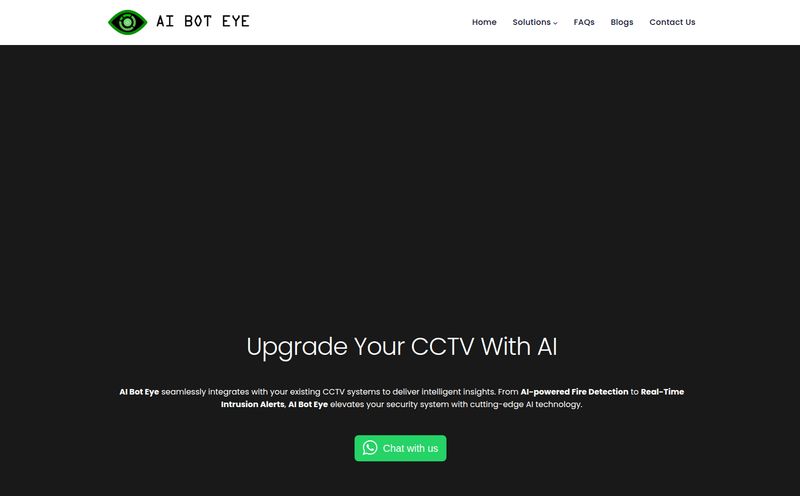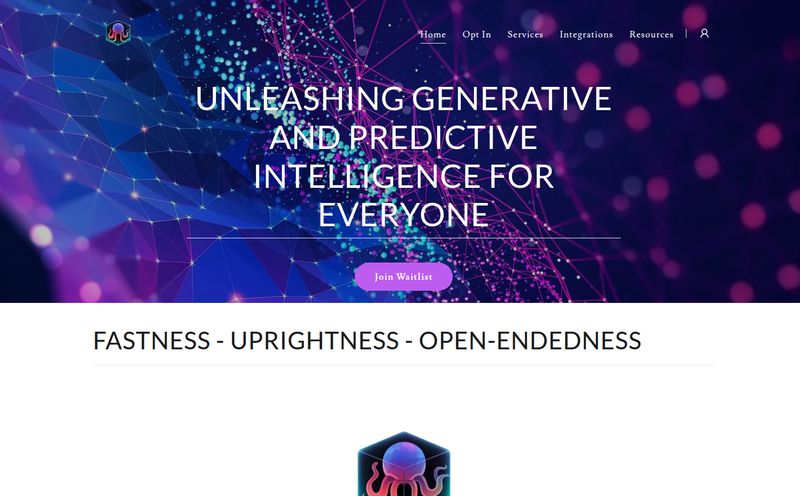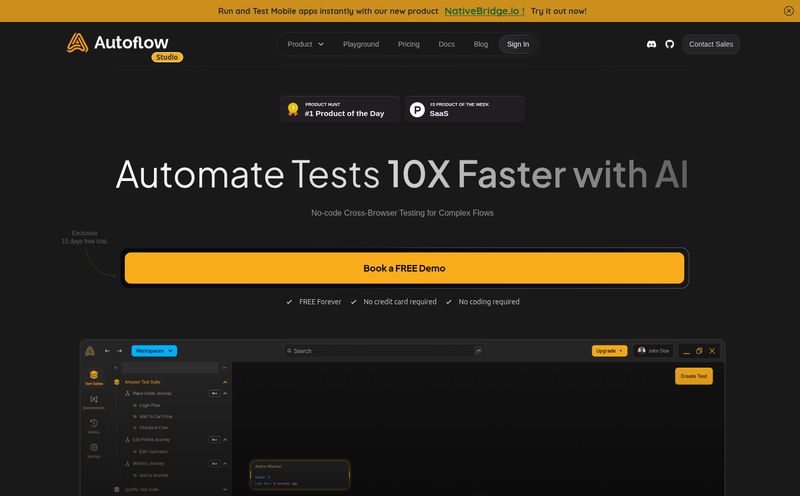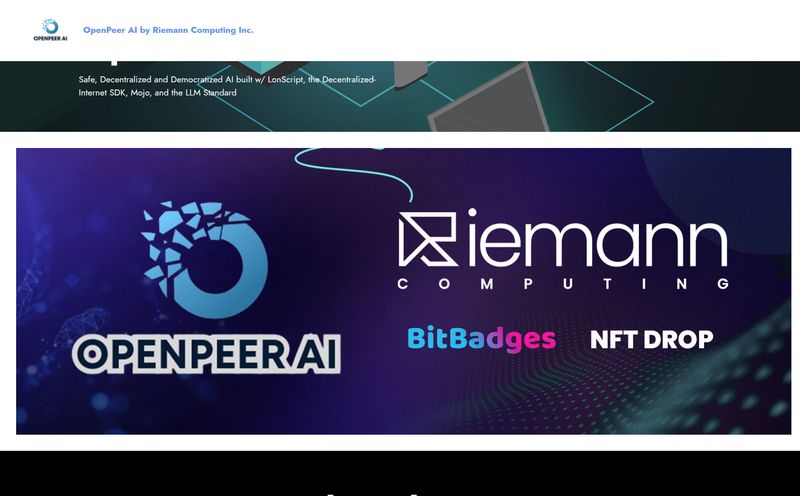If you've spent any time in the DevOps or application security world over the last few years, you know the feeling. It's that low-grade, constant hum of anxiety. You're trying to ship features faster than ever, your apps are scattered across AWS, Azure, and Google Cloud like a toddler's toys, and security... well, security often feels like the department of 'no,' showing up late to the party to tell you everything's wrong.
It’s a tale as old as time—or at least as old as the cloud. Developers want to build. Operations wants stability. Security wants, well, security. And getting them all to play nice is a full-time job. I've seen teams spend more time in meetings arguing about vulnerabilities than actually fixing them. So when a tool comes along that claims to use AI to smooth over these cracks, my interest is definitely piqued. That tool is Pervaziv AI.
I’ve been watching the AppSec (Application Security) space for a long time, and I’ve seen a lot of “silver bullet” solutions come and go. But there’s something about the Pervaziv approach that feels different. It’s not just another scanner. It claims to be a full-blown platform designed for the chaotic, multi-cloud reality we all live in. But does it live up to the hype? Let’s get into it.
So, What is Pervaziv AI, Really?
Strip away the marketing buzzwords, and Pervaziv AI is an AI-first security platform. Its main job is to help you scan, deploy, and protect your applications, especially when they’re running in multiple cloud environments. Think of it as a security co-pilot for your entire development lifecycle. Instead of bolting security on at the end like a cheap spoiler on a sports car, Pervaziv integrates it from the very beginning.
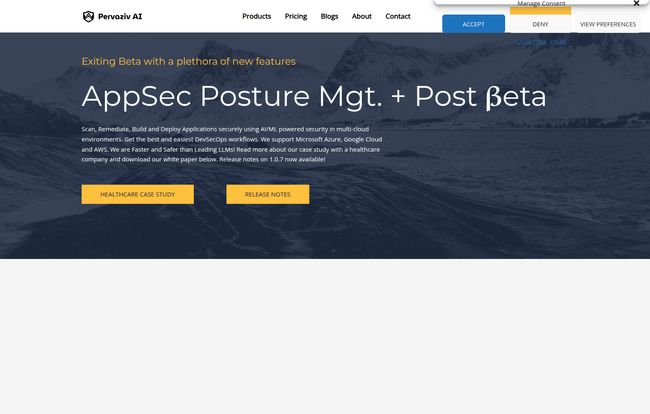
Visit Pervaziv AI
The platform uses what it calls “security-first AI models.” In practice, this means it’s been trained to think like a security expert, spotting potential threats and malicious code before they ever make it to production. It’s designed to work within your existing DevOps workflows, not against them. And for anyone who’s had a critical release held up by a last-minute security scan from a legacy tool, that’s music to your ears.
Finally, a True Shift-Left Mentality
We've been talking about “shifting left” in the industry for years. The idea is simple: move security testing and vulnerability detection to the earliest possible stages of development. It sounds great on a PowerPoint slide, but in reality, it's often clunky. Most tools that claim to do this are noisy, creating a firehose of false positives that developers just learn to ignore.
This is where Pervaziv AI seems to be making a genuine effort to be different. By embedding security scans directly into the development process, it gives developers immediate feedback. The real kicker is the AI-powered code remediation. It doesn't just flag a problem; it suggests a fix. This is huge. It turns security from a roadblock into a learning opportunity, helping developers write better, more secure code over time. It’s like having a senior security engineer looking over your shoulder, but without the awkward breathing sounds.
The Standout Features I'm Watching
Every platform has a long list of features, but a few things about Pervaziv AI really caught my professional eye.
AI That Actually Does Something Useful
The term “AI-powered” is slapped on everything these days, from toasters to toothbrushes. But here, it seems to have some real substance. The generative AI for security is the most compelling part. The platform doesn't just find vulnerabilities using old-school signature matching; it uses machine learning to understand the context of your code. This allows it to not only detect sophisticated, zero-day threats but also to generate code snippets to fix them. That saves a ridiculous amount of time and lowers the barrier to entry for developers who aren't security gurus.
Taming the Multi-Cloud Beast
I can’t stress this enough. Managing security policies, configurations, and monitoring across different cloud providers is a nightmare. Each has its own tools, its own quirks, its own security models. A tool that provides a single pane of glass to manage application security, regardless of whether it's running on a Kubernetes cluster in GCP or a Docker container in AWS, is incredibly valuable. Pervaziv AI's focus on portability and multi-cloud deployment is a direct answer to a very real, and very expensive, industry pain point.
Vulnerability Management That Doesn't Make You Cry
Traditional vulnerability scans can be overwhelming. You run a scan, and you get back a 100-page PDF with 500 “critical” issues that you have to sift through. Pervaziv AI aims to automate not just the detection but the remediation and management. By prioritizing threats based on actual risk and integrating with DevOps workflows, it makes the whole process more manageable. The inclusion of Software Component Analysis (SCA) and SBOM (Software Bill of Materials) protection in its higher tiers shows it’s serious about supply chain security, a topic that's rightly getting a lot of attention after incidents like the SolarWinds hack.
Let's Talk Money: Pervaziv AI Pricing
Okay, the all-important question: what’s this going to cost? I appreciate that Pervaziv AI is pretty transparent with its entry and mid-tier pricing, which is more than I can say for a lot of enterprise security companies. They have a classic three-tier structure.
| Plan | Price | Key Features |
|---|---|---|
| Base | $20 /user/month | Up to 8 projects, Security Scan, AI-first ML Scan, Code Remediation, Multi-user Accounts. |
| Premium | $40 /user/month | Everything in Base, plus up to 16 projects, Deep Scan, Private Code Base, Vulnerability Management, SBOM Protection. |
| Enterprise | Custom Pricing | Everything in Premium, plus unlimited projects, multi-cloud build/deploy, AppSec Posture Management, enterprise integrations. |
The Base plan seems like a solid entry point for smaller teams or projects looking to get their feet wet with DevSecOps. The Premium plan, to me, feels like the sweet spot for most growing businesses. The addition of SBOM protection and better vulnerability management tools is well worth the price jump. The Enterprise plan is the classic “call us” model, which makes sense given it includes bespoke integrations and multi-cloud deployment features.
The Good, The Bad, and The Roadmap
No tool is perfect. In the spirit of a balanced review, here’s my take. The pros are obvious: it simplifies a complex problem, saves time with automation and AI-remediation, and genuinely supports a modern, cloud-native way of working. It supports industry standards like Kubernetes and Docker, which is a must.
On the flip side, some of the most exciting features, like AppSec Posture Management (ASPM), are on the Enterprise plan or still on the roadmap. This is common for a growing platform, but it's something to be aware of. You might be buying into a vision that's still being built. I'd also love to see a public library of their specific integrations. I'm sure they connect with major CI/CD tools like Jenkins, GitLab, and GitHub Actions, but seeing a detailed marketplace or list would build more confidence. These aren't deal-breakers, just points to clarify when you book that demo.
Who Is This For?
So, who should be booking a demo right now?
- DevOps and DevSecOps Teams: This is your bread and butter. If you're trying to build a security-conscious culture without slowing down your pipelines, this tool is built for you.
- Cloud-Native Companies: If you were born in the cloud and live in a world of microservices, containers, and multi-cloud deployments, Pervaziv speaks your language.
- Security Leaders: For CISOs and Security Managers who want to empower their development teams rather than police them, the collaborative, shift-left approach is a massive cultural win.
My Final Take: Is Pervaziv AI Worth It?
Look, the application security space is crowded and noisy. But Pervaziv AI is cutting through that noise with a clear, compelling message that's aligned with where the industry is actually going. It’s not just patching old problems; it's trying to build a new, more intelligent way of securing applications from the inside out.
The combination of a true shift-left approach, genuinely useful AI for remediation, and a laser focus on the multi-cloud problem makes it a very strong contender. I've always felt the future of security is collaboration, not enforcement. Pervaziv AI seems to get that. It’s a tool that bridges the gap between development speed and security rigor. And in 2024, that’s not just nice to have—it’s essential for survival.
It's still a growing platform, but the foundation is solid and the vision is right. If you’re feeling the pain of modern application security, I'd say Pervaziv AI is absolutely worth a closer look.
Frequently Asked Questions (FAQ)
- What exactly is Pervaziv AI?
- Pervaziv AI is a software security platform that uses artificial intelligence to help developers build, deploy, and protect applications securely, particularly in complex multi-cloud environments. It focuses on integrating security early in the development process.
- How does Pervaziv AI use AI in security?
- It uses pre-trained AI and ML models to scan code and detect vulnerabilities. Its generative AI capabilities go a step further by not just identifying problems but also suggesting or generating code to fix them, saving developers significant time.
- Does Pervaziv AI work with containers like Docker and Kubernetes?
- Yes, the platform is designed to support industry-standard technologies, including Docker-based applications and Kubernetes, making it a good fit for modern cloud-native architectures.
- What does 'shift-left security' mean in the context of Pervaziv AI?
- 'Shift-left' means moving security checks and practices to the earliest stages of the software development lifecycle. Pervaziv AI accomplishes this by providing developers with immediate security feedback and code remediation suggestions as they write code, rather than waiting for a final security review before release.
- What are the Pervaziv AI pricing plans?
- Pervaziv offers three main tiers: a 'Base' plan at $20/user/month, a 'Premium' plan at $40/user/month with more advanced features, and a custom-priced 'Enterprise' plan for large organizations with complex needs.
- Is there a free trial for Pervaziv AI?
- The website doesn't advertise a self-service free trial. The primary call-to-action is to "Request a Demo," which is typical for B2B security platforms. This allows them to provide a personalized walkthrough and determine the best fit for your team.
